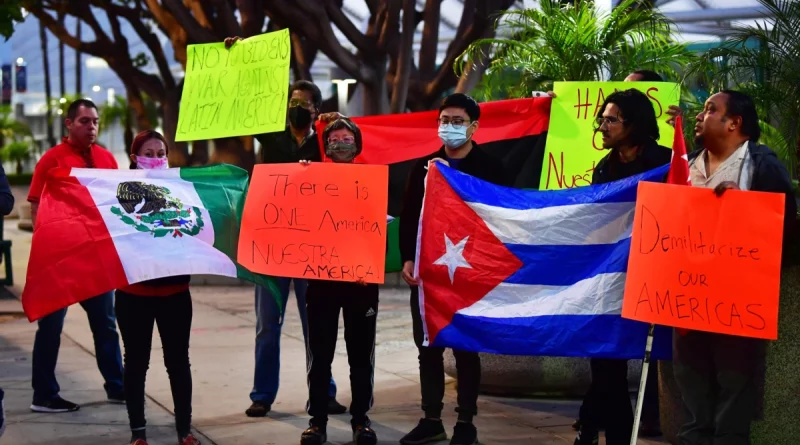The U.S. excluded Cuba, Venezuela and Nicaragua from the Summit of the Americas
The U.S. excluded Cuba, Venezuela and Nicaragua from the Summit of the Americas
The Biden administration has made a final decision to exclude the governments of Cuba, Venezuela and Nicaragua from participation in the Summit of the Americas, informed sources said. The decision was made despite threats by Mexico’s president to withdraw unless all Western Hemisphere countries were invited.
The decision, preceded by weeks of intense discussions, risks an embarrassing boycott of the summit this week in Los Angeles if Mexican President Andres Manuel Lopez Obrador and some other leaders decide not to attend.
U.S. officials decided that concerns about the human rights situation and the lack of democracy in the three countries, Washington’s main antagonists in Latin America, were too strong an argument against their invitation, a Washington source said Sunday.
U.S. President Joe Biden is scheduled to open the summit Wednesday.
Signals about excluding Venezuela and Nicaragua, where leftist forces rule, have been coming in for weeks. As for Cuba, the possibility of inviting a lower-ranking representative to replace the island’s president has been discussed, U.S. officials said. Cuban President Miguel Diaz-Canel said in May that he would not go to the summit even if invited. He accused the U.S. of “brutal pressure” to strip the summit of its inclusiveness. Cuba has attended two previous summits.
The U.S. decision was first reported by Bloomberg News. The White House did not respond to a request for comment.
Mexico’s leftist president said he would announce his participation only after Biden made his decision. Lopez Obrador could make the announcement Monday morning when he speaks at a news conference.
Offering Cuba limited participation was seen as a way to appease Lopez Obrador, but that idea was rejected, one source said. Cuban civil society activists were invited to the summit.
The controversy over the guest list overshadowed the U.S. goal of using the summit to restore relations with Latin America, tainted under Biden’s predecessor, Donald Trump, as well as to restore U.S. influence and counter China.
By excluding Venezuelan President Nicolas Maduro, the administration is considering the participation of opposition leader Juan Guaido, perhaps in a virtual format, at an event on the sidelines of the summit, a U.S. official said. Washington considers Guaido the legitimate president of Venezuela, denouncing Maduro’s 2018 re-election as built on deception.
Nicaraguan President Daniel Ortega, a former Marxist partisan who was re-elected to a fourth term in November after jailing his rivals, will also not be at the summit.
If Lopez Obrador does not come, it will raise questions about the prospects for progress in discussions on curbing migration at the U.S. southern border, which is a priority for Biden.
Most leaders have signaled that they will attend, but rebukes from leftist governments suggest that many in Latin America are no longer willing to follow Washington’s lead, as they have in the past. White House officials insist that the hype surrounding the invitations will soon die down and the summit will be a success, regardless of who attends.
